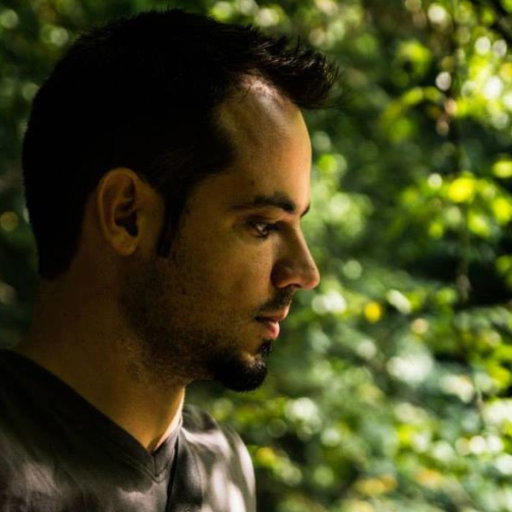
Senior Researcher
Tel: 972-4-8565245
mrubin@ocean.org.il
https://www.mrblab.org/
Research interests:
We study the molecular ecology of aquatic microorganisms. These microscopic organisms catalyze global geochemical cycles, making life sustainable. They sequester carbon, produce vast biomass, and help larger organisms to gain nutrition from much otherwise-inaccessible food sources through symbioses. They produce bioactive compounds. Microbes affect and are being affected by global climate change. Most of these organisms are difficult to cultivate, and we use cultivation-independent methods such as metagenomics to study their diversity and functionality. We focus on chemosynthetic habitats, where chemical energy rather than light fuels productivity. We recently discovered deep-sea brine pools offshore Israel, which serve as a natural lab for our recent projects.
Our ongoing projects include:
Microbial indices in marine monitoring: Microbial indices for the monitoring of marine environmental status and implement them in the National Monitoring Program (Ministry of Science and Technology – Israel, the National Monitoring Program of the Israeli Mediterranean Waters)
Deep-sea gas and brine seeps in the Mediterranean Sea: We study taxonomic and functional repertoire of microbes in gas and brine seeps offshore Israel (funded by ISF) and the sphere of influence and functionality of brine seeps (Ministry of Energy, Israel). These projects are supported by MERCI.
Molecular ecophysiology of microorganisms with two carbon fixation pathways funded by the Binational Science Foundation (BSF).
Degradation of petroleum hydrocarbons: Effects of crude-oil and gas-condensate pollution on pelagic food-webs at the Israeli Mediterranean Sea (Ministry of Energy, Israel). Evaluating the implications of condensate spills and their treatment in the coastal water of the Mediterranean Sea offshore Israel (The Ministry of Environmental Protection, Israel).
See a full list of publications: https://scholar.google.co.il/citations?user=_zABetEAAAAJ&hl=en
Selected publications:
Rubin-Blum M, Sisma-Ventura G, Yudkovski Y, Belkin N, Kanari M, Herut B, Rahav E (2022) Diversity, activity, and abundance of benthic microbes in the Southeastern Mediterranean Sea. FEMS Microbiol Ecol 98:fiac09. doi: 10.1093/femsec/fiac009
Sisma-Ventura G, Bialik OM, Makovsky Y, Rahav E, Ozer T, Kanari M, Marmen S, Belkin N, Guy-Haim T, Antler G, Herut B, Rubin-Blum M (2022) Cold seeps alter the near-bottom biogeochemistry in the ultraoligotrophic Southeastern Mediterranean Sea. Deep Sea Res Part I Oceanogr Res Pap 183:103744. doi: 10.1016/j.dsr.2022.103744
Herut B, Rubin-Blum M, Sisma-Ventura G, Jacobson Y, Bialik OM, Ozer T, Lawal MA, Giladi A, Kanari M, Antler G, Makovsky Y (2022) Discovery and chemical composition of the eastmost deep-sea anoxic brine pools in the Eastern Mediterranean Sea. Front Mar Sci 9:1040681. doi: 10.3389/fmars.2022.1040681
Zvi-Kedem T, Shemesh E, Tchernov D, Rubin-Blum M, Zvi‐Kedem T, Shemesh E, Tchernov D, Rubin‐Blum M (2021) The worm affair: fidelity and environmental adaptation in symbiont species that co-occur in vestimentiferan tubeworms. Environ Microbiol Rep 13:428081. doi: 10.1111/1758-2229.12994
Zvi-Kedem T, Vintila S, Kleiner M, Tchernov D, Rubin-Blum M (2023) Metabolic handoffs between multiple symbionts may benefit the deep-sea bathymodioline mussels. ISME Commun 3:48. doi: 10.1038/s43705-023-00254-4
Rubin-Blum M, Harbuzov Z, Cohen R, Astrahan P (2023) Anthropogenic and natural disturbances along a river and its estuary alter the diversity of pathogens and antibiotic resistance mechanisms. Sci Total Environ 887:164108. doi: 10.1016/j.scitotenv.2023.164108
Cohen R, Paikin S, Rokney A, Rubin-Blum M, Astrahan P (2020) Multidrug-resistant enterobacteriaceae in coastal water: an emerging threat. Antimicrob Resist Infect Control 9:169. doi: 10.1186/s13756-020-00826-2
Rubin-Blum M, Antony CP, Sayavedra L, Martínez-Pérez C, Birgel D, Peckmann J, Wu Y-C, Cardenas P, MacDonald I, Marcon Y, Sahling H, Hentschel U, Dubilier N (2020) Fueled by methane: deep-sea sponges from asphalt seeps gain their nutrition from methane-oxidizing symbionts. ISME J 13:1209–1225. doi: 10.1038/s41396-019-0346-7
Rubin-Blum M, Dubilier N, Kleiner M (2019) Genetic evidence for two carbon fixation pathways (the Calvin-Benson-Bassham cycle and the reverse tricarboxylic acid cycle) in symbiotic and free-living bacteria. mSphere. doi: 10.1128/msphere.00394-18
Rubin-Blum M, Antony CP, Borowski C, Sayavedra L, Pape T, Sahling H, Bohrmann G, Kleiner M, Redmond MC, Valentine DL, Dubilier N, others (2017) Short-chain alkanes fuel mussel and sponge Cycloclasticus symbionts from deep-sea gas and oil seeps. Nat Microbiol 2:17093. doi: 10.1038/nmicrobiol.2017.93





